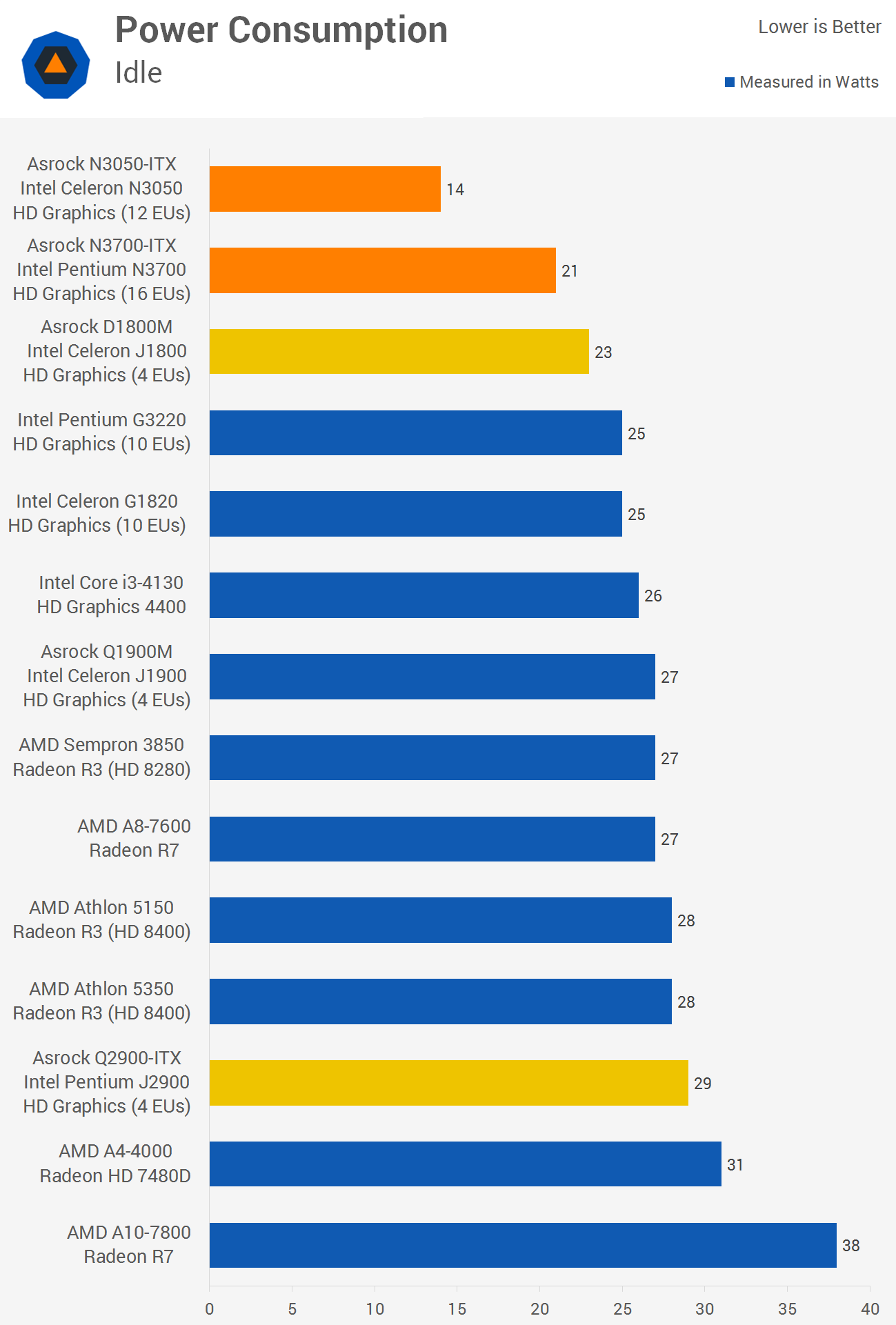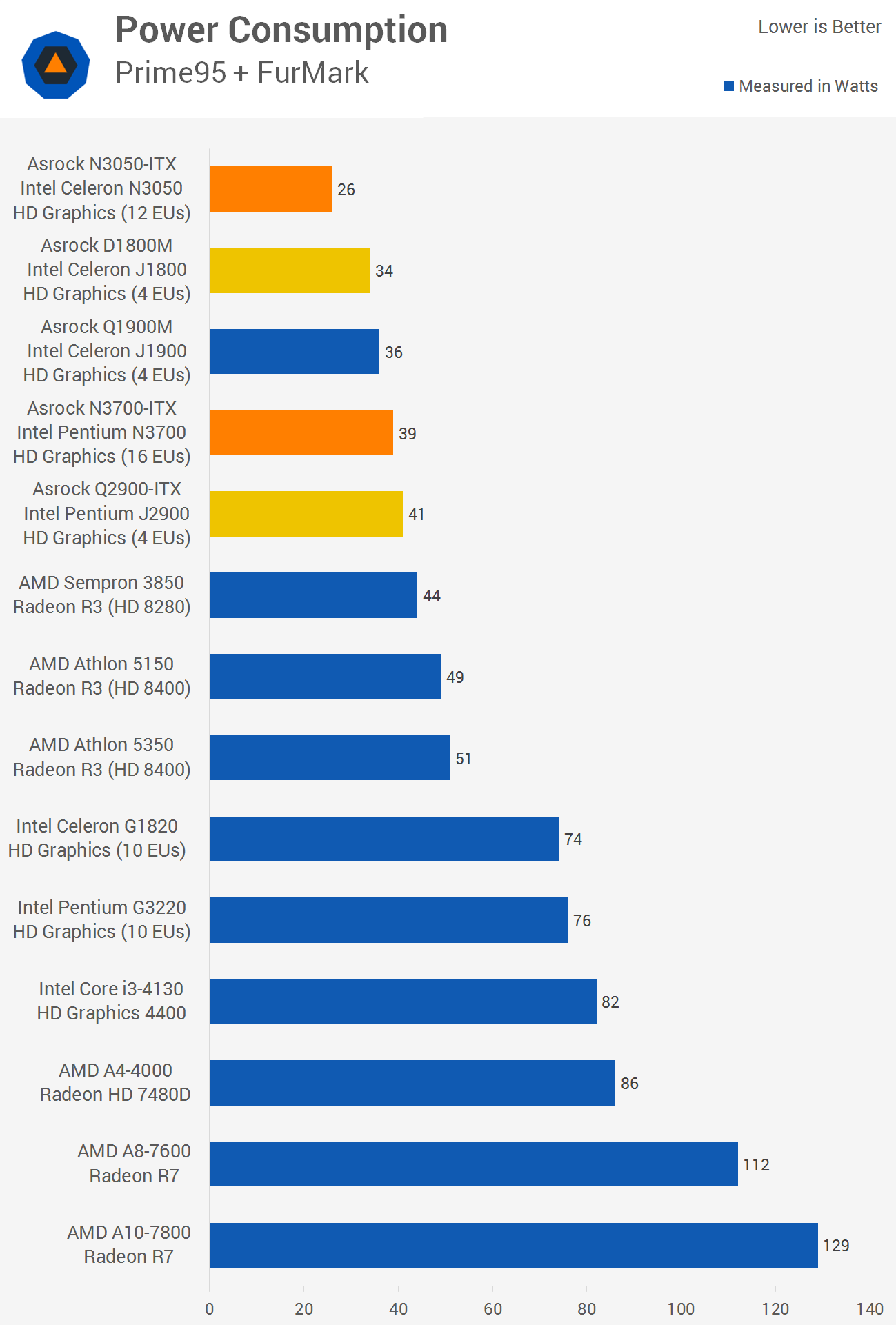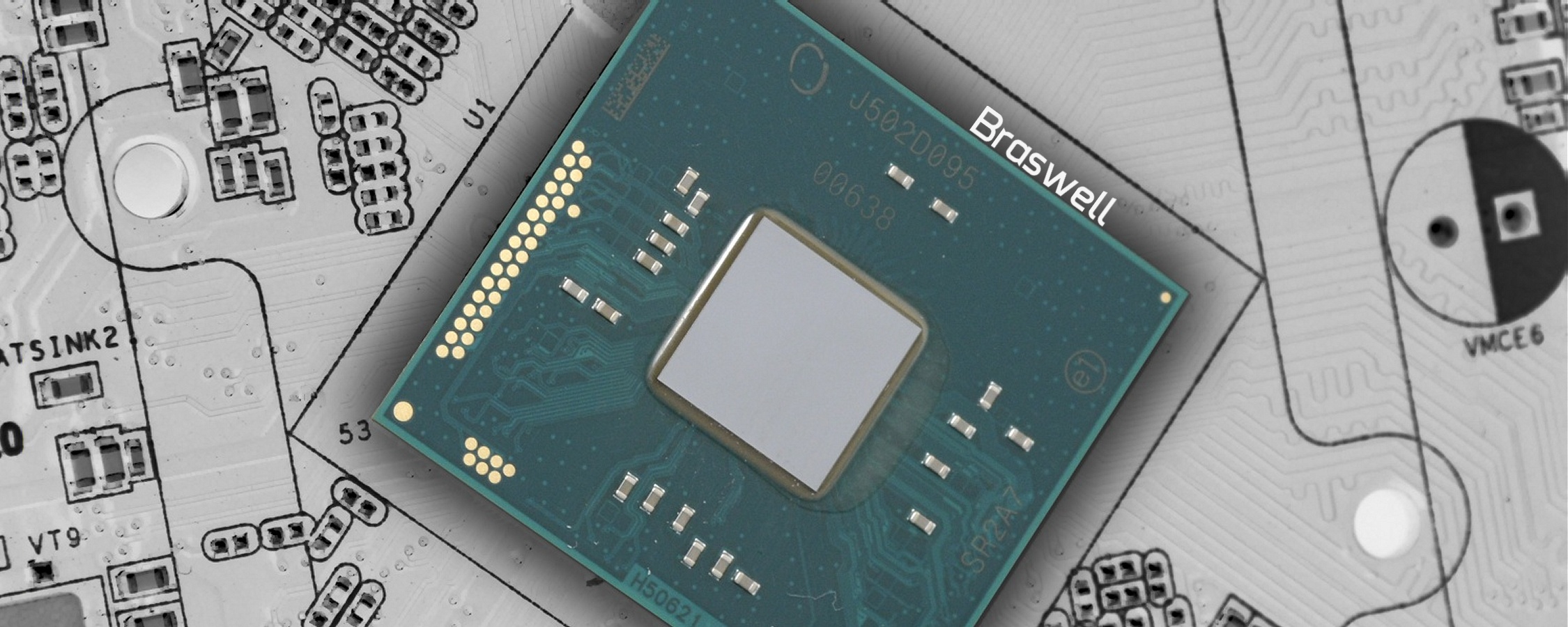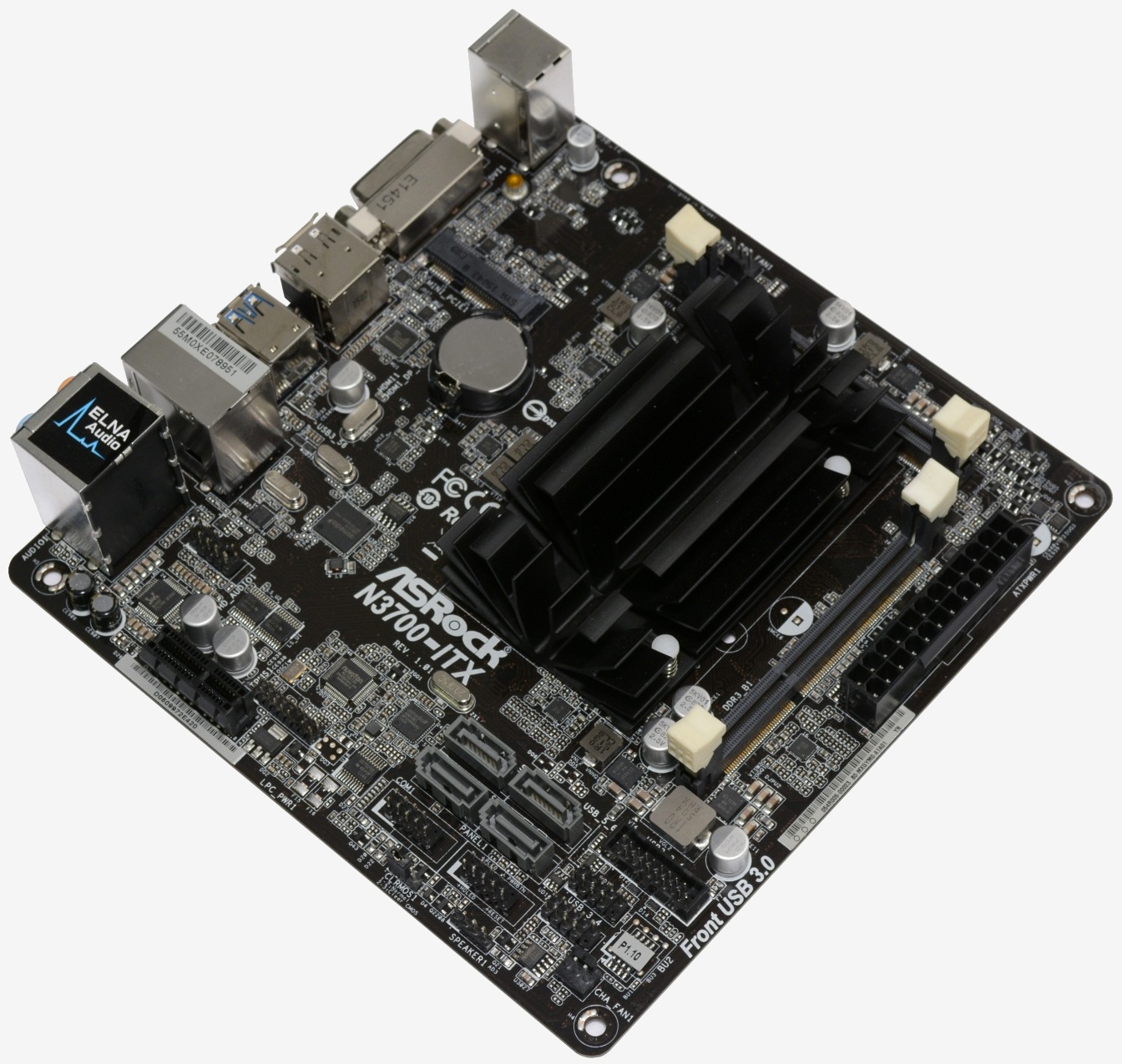Power Consumption, Final Thoughts

With the system left to idle the Pentium N3700 consumed 28% less power than the Pentium J2900. The Celeron N3150 saw even better savings (39%) over its Bay Trail-D equivalent, the J1800.

With all four cores under full load the Pentium N3700 consumed 24% less power than the J2900. The Celeron N3150 did even better, consuming 41% less power than the J1800.

What's interesting is once we place full load on both the CPU cores and the GPU, the Pentium N3700 is just 5% more efficient than the J2900. That said, the Celeron N3150 still consumed 24% less power than the J1800.
More efficient than Bay Trail? We're not so sure
Upon receiving these new affordable Braswell powered motherboards from Asrock we were keen to begin testing. Unfortunately, that excitement began wearing off as we delved into benchmarking, though we shouldn't really be surprised with most of the results.
Braswell marks a "tick" in Intel's tick-tock strategy and brings a shrink of the previous microarchitecture's process technology as opposed to a new microarchitecture, as you'd expect with a tock. However, Braswell is more than just a die-shrink, featuring updated CPU cores as well as an 8th generation GPU architecture.
The key improvements should show in price and power consumption, but the older Bay Trail-D processors are clocked considerably higher, which means they will naturally consume more power. This wouldn't be an issue if the lower clocked Braswell parts were as fast or faster, but they weren't, at least not for the most part.
So while the Braswell-based Pentium N3700 did consume 28% less power than the Bay Trail-D Pentium J2900 with the CPU cores under full load, it isn't 28% more efficient because it was 18% slower in Excel 2013 and Photoshop CC for example.
This brings us back to the fact that the Pentium N3700's base clock frequency is clocked 33% lower with a 10% slower boost clock speed compared to the J2900, which makes it hard to determine if Braswell is in fact more efficient than Bay Trail.
Looking back at our application testing, there wasn't a single instance where the N3700 was faster than the J2900. Moreover, the N3700 was almost always at least 10% slower than the J2900, which as we just mentioned is the same deficit as the boost clock speed.
Sadly it isn't possible to tinker with the clock speeds of these embedded processors, with Asrock offering no way to limit or adjust frequencies. This rules out a true clock-to-clock comparison. Given what we have seen, there doesn't look to be any tangible differences between Bay Trail and the new Braswell SoCs in terms of performance or efficiency.
What we do know is that for general usage these new Braswell processors are slower than their Bay-Trail equivalents, at least 10% slower, which is very disappointing. While 3D performance has been greatly improved, Braswell is still rubbish for budget gaming.
Nevertheless, it does bridge the gap between Intel and AMD for ultra-budget 3D performance, so much so that the Pentium N3700 is faster than the Athlon 5350. The AM1 platform's GPU performance was the only reason we would have previously picked it over Bay Trail and with Braswell improving in this area we see no reason to go AMD anymore.
That said, if gaming performance isn't a priority then we would go with Asrock's Q2900-ITX motherboard over the newer and slower Asrock N3700-ITX as the former is faster in anything non-3D. If you read our Bay Trail coverage, you'd know we ultimately wouldn't pick the Q2900-ITX either because the Q1900-ITX delivers the same performance while costing 27% less.
score
Pros: More USB 3.0 and SATA ports compared to its predecessor, DisplayPort added to the N3700-ITX. Braswell should be more energy efficient though calculating by how much is hard to say given it was also slower. GPU performance was much improved.
Cons: No PCIe x16 slot for the Mini-ITX boards. Lower clock speeds mean less power is consumed but in the case of Braswell it also meant running slower so we question the efficiency. Availability is poor as we are yet to see any Braswell desktop boards on sale.

